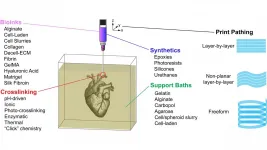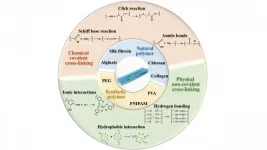Sugar is an important nutrient. All cells use sugar as a vital source of energy and building blocks. For immune cells, gobbling up sugar is a good thing, since it means getting enough nutrients to grow and divide for stronger immune responses. But cancer cells use sugar for more nefarious ends.
So, what happens when tumor cells and immune cells battle for access to the same supply of sugar? That's the central question that Memorial Sloan Kettering researchers Taha Merghoub, Jedd Wolchok, and Roberta Zappasodi explore in a new study published February 15 in the journal Nature.
Using mouse models and data from human patients, the researchers found a direct relationship between the amount of sugar -- specifically glucose -- that a tumor consumes and the effectiveness of immunotherapy: The more sugar the tumor consumed, the less effective the immunotherapy.
The findings suggest that blocking cancer cells' use of sugar could tip the scales in favor of immune cells, especially when they are activated by immunotherapy drugs.
"If we reduce a tumor's use of glucose, then we free up more of it for immune cells to use, which benefits the immune response," says Dr. Merghoub, who co-led the research effort.
"What we think we've identified is a new means to improve checkpoint blockade immunotherapy," adds Dr. Wolchok. Immune checkpoint inhibitors release the brakes on immune cells and can provide lasting benefits for people with cancer, but they do not work for everyone. The new research may provide a way to boost their effectiveness.
Dr. Wolchok, Chief of the Immuno-Oncology Service in the Human Oncology and Pathogenesis Program at MSK, also directs the Parker Institute for Cancer Immunotherapy at MSK and co-directs the Ludwig Center for Cancer Immunotherapy at MSK.
Vying for Resources
To examine the relationship between tumor cells' use of glucose and response to immunotherapy, the researchers turned to a mouse model of breast cancer that is highly glycolytic -- meaning it uses a lot of sugar to grow. In the first set of tumors, the researchers genetically knocked down a key enzyme cells require to rapidly consume glucose in a process called glycolysis. In the second set, the enzyme was left alone. Each set of tumors was grown in mice and then the mice were treated with checkpoint inhibitors targeting CTLA-4 before having surgery to remove the tumor. The results: The mice whose tumors consumed less sugar survived longer and had a far lower rate of metastasis (when the cancer spreads) than the mice with tumors that used more glucose. This indicated an improved response to immunotherapy in mice whose tumors consumed less glucose.
Moreover, the improved immune response exhibited memory. When researchers re-implanted tumors in the mice exposed to the less-glycolytic tumors, tumor growth remained suppressed. By contrast, mice exposed to the more-glycolytic tumors were not able to control the growth of re-implanted tumors.
The team also looked at human data. When they measured glucose use by tumors and compared that to the number of immune cells present in a tumor, they found that the two measures were inversely correlated: The higher the glucose use by tumors, the fewer immune cells present.
Releasing Multiple Brakes
When it comes to immune checkpoint blockade, two types of T cells are crucially important -- effector T cells and regulatory T cells (Tregs). Effector T cells are the ones that actually attack cancer cells and kill them, whereas Tregs serve as a kind of brake on the effector T cells.
It turns out that glucose affects these two T cell types differently. More available glucose boosts the effector T cells' killing ability. With Tregs, more glucose means they lose their ability to apply the brakes. That means that freeing up glucose for use by immune cells is doubly beneficial at giving a boost to immunotherapy drugs.
"It was surprising and exciting to see that CTLA-4 blockade induces Tregs to use glucose and that this in turn reduces the suppression activity of these cells," says Dr. Zappasodi, a former Parker Institute Bridge Scholar in the Merghoub-Wolchok lab and now a faculty member at Weill Cornell Medicine.
"The implication is that for tumors that are highly glycolytic and don't respond to immune checkpoint blockade, one way of overcoming this resistance is to target tumor glycolysis with drugs," Dr. Merghoub adds.
The feasibility of using sugar to boost immune responses depends on being able to preferentially limit glucose use by tumors -- and that's where it gets tricky. Existing drugs that block sugar use by cancer cells will also block sugar use by immune cells, which would defeat the purpose. What is needed are drugs that can prevent tumor cells from using glucose while allowing immune cells to use it freely. The team has a few leads and is exploring them now.
INFORMATION:
This research was funded in part through the NIH/NCI (grants R01 CA215136-01A, R50 CA221810, T32CA082084, F31AI149971, DP2AI136598, R21AI135367, and Cancer Center Support Grant P30 CA00874)8, Swim Across America, Ludwig Institute for Cancer Research, Parker Institute for Cancer Immunotherapy, the Breast Cancer Research Foundation, SNSF project grants (31003A_182470), and European Research Council Staring Grant (802773-MitoGuide). Dr. Zappasodi is an inventor on patent applications related to work on GITR, PD-1, and CTLA-4, and is a consultant for Leap Therapeutics and iTEOS Belgium SA. Dr. Merghoub is a cofounder and holds an equity in IMVAQ Therapeutics and is a consultant of Immunos Therapeutics, Pfizer, and Immunogenesis. Dr. Merghoub has research support from Bristol Myers Squibb; Surface Oncology; Kyn Therapeutics; Infinity Pharmaceuticals, Inc.; Peregrine Pharmaceuticals, Inc.; Adaptive Biotechnologies; Leap Therapeutics, Inc.; and Aprea. He has patents on applications related to work on oncolytic viral therapy, alpha virus-based vaccine, neoantigen modeling, CD40, GITR, OX40, PD-1, and CTLA-4. Dr. Wolchok is a consultant for Adaptive Biotech; Amgen; Apricity; Ascentage Pharma; Astellas; AstraZeneca; Bayer; Beigene; Boehringer Ingelheim; Bristol Myers Squibb; Celgene; Chugai; Eli Lilly; Elucida; F Star; Georgiamune; Imvaq; Kyowa Hakko Kirin; Linneaus; Merck; Neon Therapeutics; Polynoma; Psioxus; Recepta; Takara Bio; Trieza; Truvax; Sellas; Serametrix; Surface Oncology; Syndax; Syntalogic; and Werewolf Therapeutics. He reports grants from Bristol Myers Squibb and Sephora and has equity in Tizona Pharmaceuticals; Adaptive Biotechnologies; Imvaq; Beigene; Linneaus; Apricity; Arsenal IO; and Georgiamune. Dr. Wolchok is an inventor on patent applications related to work on DNA vaccines in companion animals with cancer, assays for suppressive myeloid cells in blood, oncolytic viral therapy, alphavirus-based vaccines, neoantigen modeling, CD40, GITR, OX40, PD-1, and CTLA-4.



